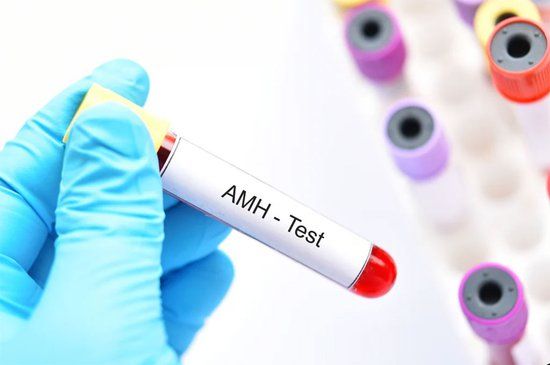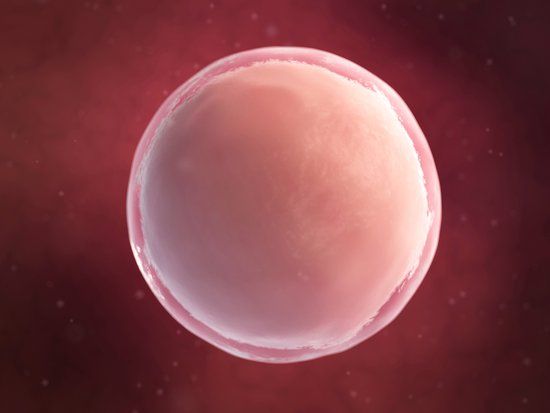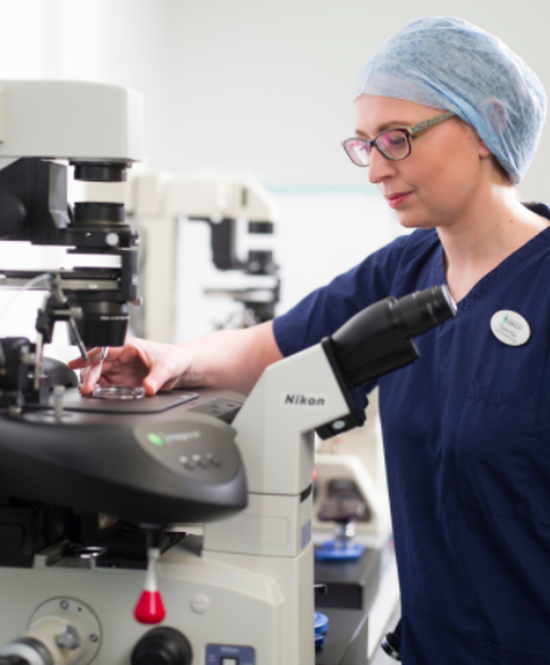
If you are trying to conceive, you may come across phrases such as ‘ovarian reserve level’ or ‘egg count test.’ These are simply talking about your AMH - Anti-Mullerian Hormone – level.
But what is AMH, and why is it so important when looking at fertility and chances of IVF success?
What AMH is
Anti-Mullerian Hormone is produced by the follicles – egg sacs – that contain all the immature eggs you have in your ovaries. Every woman has a set supply of immature eggs, which reduces as you get older. By measuring your AMH level through a simple, non-invasive blood test, we can get a good indication of how many immature eggs you have, otherwise known as your ovarian reserve.
Why AMH matters
AMH testing gives us vital information about your fertility, whether you are trying to conceive naturally and are having a Fertility Assessment, are starting fertility treatment or are considering egg freezing.
AMH and natural conception:Testing your AMH can help you make informed fertility choices if you are planning a family. As part of a comprehensive fertility assessment, your AMH result - together with other factors - can help you understand if you may need help to conceive, ensuring you seek help sooner rather than later from a fertility specialist.
AMH and IVF: AMH testing is an important part of the treatment planning process. It gives us a good idea of the egg numbers you might achieve through IVF and allows us to tailor IVF to suit you, so that you have eggs for treatment and a safe ovarian response.
If your AMH level is low, this may indicate that conventional IVF stimulation may not be your best option, in which case we would change to a different protocol. If your AMH is very low, you may be advised to consider using donor eggs. If your AMH is too high, this indicates you have lots of follicles which potentially puts you at risk of Ovarian Hyperstimulation Syndrome, where you produce too many eggs.
AMH and egg freezing: AMH helps to tell us if egg freezing is suitable for you and if there will be a good number of eggs for preservation. If your AMH level is too low, you will not respond well to ovarian stimulation and will not have many eggs to freeze.
Understanding your AMH result
Whatever your AMH level is, it is important to remember that AMH alone does not predict your chances of pregnancy or IVF success. Your potential for conceiving is influenced by lots of other factors too, such as your age and other key hormone levels. All of these things together with your AMH level will be taken into account when determining how we can help you have a baby.
Depending on your result, your consultant may advise further tests to assess your ovarian reserve, which may include an FSH blood test on day 3 of your menstrual cycle. FSH – Follicle Stimulating Hormone – is the hormone that stimulates the growth of follicles in the ovary before the release of an egg and together with your AMH level is a useful indicator of ovarian reserve.
Fertility testing and IVF at Manchester Fertility
If you would like to understand more about your fertility and your ovarian reserve, talk to our Patient Advisors about starting IVF with us. Or you can self-refer online by calling 0161 300 2737.
Last updated: 14th February 2019







